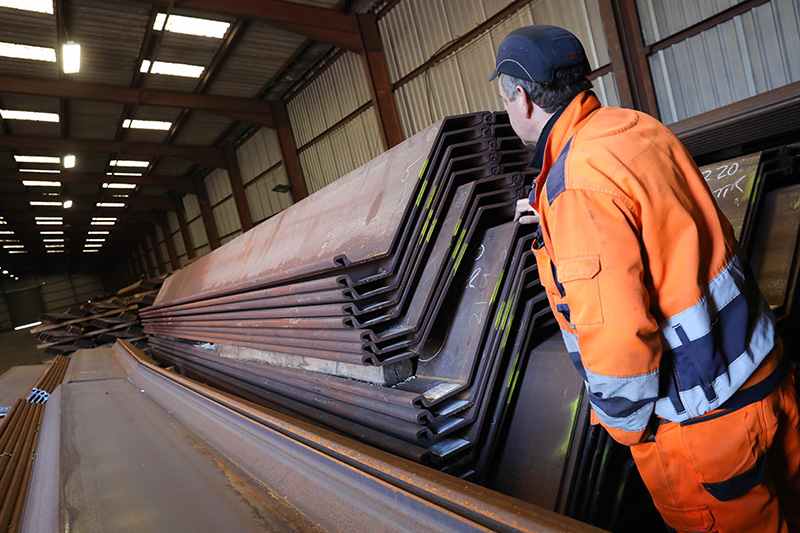
SHEET Piling UK is urging the construction industry to make 2024 a year in which it commits to reduce the amount of embedded carbon in its projects.
The sheet piling installation specialist, project designer and sheet pile supplier highlighted how it helped reduce embedded – or embodied – carbon on a variety of projects in 2023.
In each case, Sheet Piling UK said the focus on reducing embedded carbon has been ‘wholly voluntary’, but believes that for real progress to be made towards net zero objectives, more developers and contractors need to follow suit.
Sheet Piling UK revealed its major achievements in helping contractors reduce embedded carbon have come when there has been early stage involvement. This has allowed both pre-construction and in-house design teams to offer alternative viewpoints and designs, focused on carbon reduction. Sheet Piling UK added that it would like to see early stage discussions about carbon being mainstream practice within the sector.
Embedded carbon is associated with materials and construction processes throughout the whole lifecycle of a building or infrastructure. Upfront embedded carbon comprises emissions emanating from materials within the manufacturing and construction phase. Thereafter, there is ‘in use’ embedded carbon, from emissions from materials or processes needed to maintain or refurbish the building or infrastructure. End-of-life embedded carbon is that which results from deconstruction, demolition and disposal of materials.
Sheet Piling UK is urging developers and contractors to focus on all three elements of embedded carbon, by choosing a material, in steel, which can positively influence emissions across the embedded carbon spectrum. This, the firm said, is because steel is ‘naturally a more carbon-friendly material’. It has a lifespan of up to 125 years, so every metric ton manufactured helps maximise the value of the resources going into it.
Steel sheet piles are also said to offer the advantage of being reusable and used within projects several times over, before coming to the end of their life. At that point they can be recycled.
Early involvement on the part of Sheet Piling UK’s team can assist in suggesting how sheet pile reusability can best assist a project. Opting for used sheet piles can be one way of reducing the embedded carbon.
Where temporary steel sheet pile structures are required within a construction brief, the company revealed embedded carbon can be cut even more, if a staggered approach to installation can be achieved. Extracting and reinstalling sheet piles within the same site is described as an ‘extremely efficient’ way of reducing embedded carbon.
Sheet Piling UK is the exclusive UK and Ireland steel piling partner of Emirates Steel Arkan (ESA), which the business said has been shown to manufacture the ‘greenest’ steel sheet piles available to the construction industry.
The Abu Dhabi-based manufacturer’s ultra-low emission Green Steel sheet piles have been verified as generating just 350kg of CO2 per tonne produced. Sheet Piling UK said the norm for carbon generation within primary steel production within the global steel industry is 1,910kg of CO2 per tonne.
Emirate Steel Arkan’s figures were produced by an Engie Impact benchmarking study and the cradle-to-gate life cycle analysis was reviewed and endorsed by an independent carbon auditor.
This steel is produced through an Electric Arc Furnace (EAF) production process, using ‘clean’ electricity, which now powers 80% of production. The manufacturer also operates an advanced carbon capture process, in partnership with the Reyadah Carbon Capture, Utility and Storage Facility.
Andrew Cotton, Sheet Piling UK’s MD, said, “We would urge contractors, developers, architects and clients commissioning projects to make it their New Year resolution to consider embedded carbon and actively take steps to reduce this within their project. Unless the industry quickens its pace on carbon reduction, targets will not be met and we will be unable to combat climate change.
“Our ISO 9001 accredited design team, work to UK and Eurocode design standards and have actually been involved in shaping some of those standards. They can suggest turnkey solutions that build embedded carbon considerations in from a very early stage, as well as delivering an optimal sheet pile solution for any brief.”








